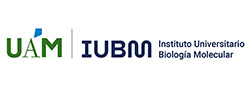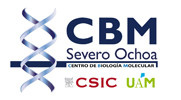Patho-physiological implications of G protein-coupled receptors signaling networks.
Prof. Federico Mayor Menéndez. Catedrático. Departamento de Biología Molecular. UAM.
Prof. Cristina Murga Montesinos. Catedrática. Departamento de Biología Molecular. UAM (co-PI)
Prof. Irene García-Higuera. Profesora Contratada Doctora. Departamento de Biología Molecular. UAM
Dra. Carmen Vida. Investigadora “Juan de la Cierva”. Departamento de Biología Molecular. UAM.
Prof. Natalia Reglero Real. Investigadora “María Zambrano”. Departamento de Biología Molecular. UAM.
Our laboratory is interested in understanding the role of key regulatory hubs in the maladaptive rewiring of cell signaling networks that takes place during the onset or progression of metabolic, cardiovascular and inflammatory diseases and in cancer. G protein-coupled receptor kinase 2 (GRK2) acts as a relevant node by modulating signaling mediated by many GPCRs and via phosphorylation or scaffolding interactions with a growing array of cellular partners. Our laboratory has pioneered the research on such complex “interactome” and on the mechanisms regulating GRK2 levels and functionality. In obesity and insulin resistance-related contexts, we have described that age and sex-related factors modulate maladaptive changes in cardiac GRK2 levels and described tissue-specific roles of GRK2 in the modulation of metabolic homeostasis. In collaboration with P.Penela and C.Ribas, we have shown that GRK2 acts as an oncomodulator in breast cancer and in stratified epithelial tumors, by interacting with networks related to the hallmarks of cancer in a cell type-dependent manner, and that the GRK2 interactor Gαq regulates the autophagic machinery upon nutrient fluctuations.
Since complex intercommunication among cell types from different tissues and with the cells of the immune system is essential for cellular and organismal homeostasis, our current aim is to elucidate how cell-type specific GRK2 interactomes are involved in cell-cell communication in defined physiological and pathological conditions. In close collaboration with other PIs of our Programme, we will use cellular and animal models with altered GRK2 levels or functionality in specific cell types to study:
- Maladaptive reshaping of metabolic and inflammatory networks in different tissues in physio-pathological situations related to aging, obesity, insulin resistance and cardiovascular alterations, with particular emphasis on the role of GRK2 in myeloid (neutrophils and macrophages) and other immune cells in inter-organ crosstalk in such disease contexts (objectives led by C. Murga, I. García-Higuera and N. Reglero-Real).
- Autophagy, endothelial dysfunction and inflammation. N.Reglero-Real and C. Ribas will collaborate in elucidating the modulation of these processes by Gq and other signalling networks.
- Crosstalk of signaling cascades within the tumor microenvironment. Connections among tumor microenvironment stresses, chemokine and growth factor-receptors and GRK2 interactors (HDAC6, HuR, Mdm2, Lyn) in the rewiring of breast cancer cell phospho-proteome, acetylome and ubiquitome leading to metastatic features (in collaboration with P. Penela and the Oncornet 2.0 consortium).
- Epidermal homeostasis and keratinocyte-immune cells crosstalk. Impact of GRK2 deletion in keratinocytes in the skin immune cell landscape, barrier function, skin-microbiome interaction and hair follicle homeostasis, and in the susceptibility to inflammatory diseases and squamous cell carcinomas (in collaboration with C. Ribas).


